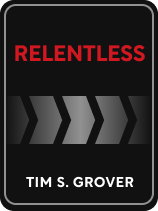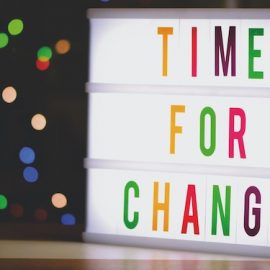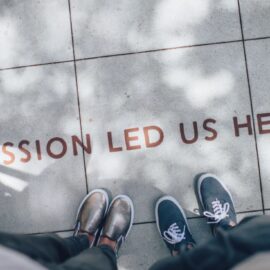

This article is an excerpt from the Shortform book guide to "Relentless" by Tim Grover. Shortform has the world's best summaries and analyses of books you should be reading.
Like this article? Sign up for a free trial here .
Are you afraid you don’t know how to be a good human being? Why is being good not enough?
Being a good person is more than just being helpful and kind to others. As stated in his book Relentless, Tim Grover thinks that in the context of improving yourself, being good doesn’t cut it—you have to be great or unstoppable.
Nonetheless, it’s important to learn how to be a good human being to improve. Here’s what Grover defines as “good,” and why you shouldn’t stop there.
Defining a Good Human Being
What is the first step in learning how to be a good human being? A good person, according to Grover, is rarely or never relentless due to a fear of failure. This fear prevents a good person from fully committing to a task—therefore preventing them from relentlessly pursuing success. Because of this, they can be good at what they do but will never be the best or even great.
(Shortform note: Seth Godin (Purple Cow) agrees with Grover that fear of failure prevents success, and offers further explanation as to why this happens. Godin argues that being afraid will hold you back from taking risks—which is essential for success because it helps you stand out from everyone else who’s playing it safe. This makes other people more likely to remember you and offer you opportunities. Therefore, since fear of failure prevents risks it also prevents success.)
Grover offers two ways that fear of failure and lack of commitment prevent a good person from succeeding.
1) The Good Can’t Take Initiative
Fear of failure makes a good human being unable to take initiative—even when they know exactly what they should do—because they fear making a mistake if they do. Instead of taking initiative, the good people tend towards two behaviors:
- Providing support: Because they are followers, good people focus on helping and encouraging others to succeed above themselves. This way, they can still be a part of the team without having to step up and face their fear of taking charge.
- Mediating conflict: good people will avoid taking sides when a conflict arises because they are afraid of being wrong. Instead, they’ll try to work with both sides to mediate.
| The Good Must Focus on Others You might think that Grover is criticizing the ability to support and mediate because he associates them with what he defines as good. However, remember that Grover says you can approach any skill with a relentless mindset—including those two abilities. As an example, there are careers and organizations available for professional mediators—a profession in which one could pursue conflict resolution relentlessly. For clarity, it might help to consider Grover’s explanation of what makes someone good from this perspective: Doing these things doesn’t make you Good—having to do those things does. You can apply this perspective to both examples: good people have to provide support because their fear prevents them from taking charge, and good people have to mediate conflict because they don’t want to take sides for fear of being wrong. |
2) The Good Freeze Up Under Pressure
Grover explains that to be a good human being also means freezing up under pressure. Pressure causes someone good to focus on the possibility of failure instead of on what they’re trying to accomplish—in other words, they’ll freeze up because they overthink what they’re doing.
For example, a good dancer is in a competition. They’ve practiced extensively, and have natural talent. However, once they’re about to start, they worry they won’t be able to pull off the backflip at the end of their routine. They try to remember all of the advice their teachers, mentors, and peers gave them about backflips. Now they have a ton of information and self-doubt in their mind taking their focus away from the actual dancing, and their performance suffers.
(Shortform note: Psychologist Sian Beilock agrees with Grover’s argument that overthinking leads to paralysis in Choke, and offers a psychological explanation for why this is true. Beilock argues that once you learn to perform a task, your brain approaches that task without needing to think through each of its individual steps. However, overthinking makes you go back to consciously thinking through each step like a beginner would. This shift in approach confuses your brain, causing you to freeze up and fail to perform.)

———End of Preview———
Like what you just read? Read the rest of the world's best book summary and analysis of Tim Grover's "Relentless" at Shortform .
Here's what you'll find in our full Relentless summary :
- The qualities you’ll need to become the best in your field
- Why sacrifices and discomfort are necessary for growth
- Why you should practice indulging in your primal self






